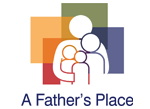
Faith Communities…A Community Church Fostering Assistance Initiative
For more information, please contact: Christopher Schafehen
843-283-7600 cvs2871@gmail.com
Faith Communities is a ministry to assist foster families, one church at a time, one foster family at a time. Legacy church will be the pilot for this ministry. TNFosters (https://www.tn.gov/tnfosters) is the model and has a statewide program in place. Horry County is in great need for this program. DSS is involved and is supporting this initiative.
Faith Communities will support foster parents in tangible and emotional ways. Congregations can “Wrap Around” foster parents — whether it is mowing a lawn to help a father spend more time with the children he is fostering, baking muffins to drop on a family’s doorstep, take a child to an appointment or give periodic relief to foster families by watching the foster children in their care while they go to the grocery store, or simply to provide a night out for foster families who need personal time to replenish.
Other ideas include: Respond to DCS’s (Department of Child Services) concrete needs requests: Local offices often need things such as clothing, car seats, even mattresses. churches and civic groups can offer space for foster parent training classes; individuals or church groups can write letters of support to birth families or young people aging out of care. Grants are available for foster children up to age 21. There is a need for advocates as well.
It’s been reported that people donate cars to young adults who have aged out of foster care, cooked holiday meals for foster families, and painted fun and fresh murals in DCS (department of Child Services) family visitation rooms.
Recently, volunteers offered a family portrait day — complete with hair and make-up — for children and their birth parents. One birth mother said she never had had a formal portrait done with her children and the gift moved her.
The children and families DCS serves are “our” children. They are the kids your child goes to school with. It is the parent you see in the grocery store. It may even be someone from your family or network of friends.
We all need to be challenged to make a difference in the life of a child or family. We can identify how you can support a foster family in a way that makes sense for you and your family.
FIVE STEPS TO START A FOSTER CARE MINISTRY AT YOUR CHURCH
1. Pray
Consider if this is where the Lord is leading you before you embark on the adventure of foster care ministry together.
2. Pastoral Support
The foster care ministry will be woven into the entire church body and ministry plan. The Pastor does not need to be the main point person, but the church needs the support from the leadership to move forward.
3. Identify Leadership
Who might God be calling to be involved? The foster care ministry leadership team includes individuals who will be advocates for foster care and participate in leading and organizing the ministry.
4. Annual Ministry Plan
TNFosters.com is putting together a plan that will guide your church’s foster care ministry, setting goals and guiding as you move forward to develop and implement a new program, continually woven into the larger church body and other ministries.
5. Financial Support and Volunteer Support Team Training
Once the legwork is complete, the entire congregation is invited and follow up with foster volunteer opportunities.
OUR MISSION
Faith Communities serves as the faith-based community and the State of South Carolina with the goal of meeting the immediate needs of birth, foster and adoptive families as well as the children and youth currently in foster care and those aging out of the system. This initiative is in cooperation of the South Carolina DSS (South Carolina Department of Social Services) and is based on TNFosters model (America’s Kid’s Belong, Virginia Adopts and Dream Makers).
We believe every child in foster care is unique and carries with them their own story, but they have a few things in common: resilience, big dreams and even greater potential. They just need a loving, patient, and supportive family to help them thrive.
It is an opportunity for government, faith, business, creative and non-profit leaders and the private sector to say “yes” to supporting children in foster care. It is the time to wrap around birth, foster and adoptive families. And it is a way to tell children in foster care that they are seen, precious, and worthy of belonging.
Together we can change the story for children in foster care. Please join us in this initiative and find your role in this new story today.
Churches can help in the entire spectrum of child welfare services. Churches help keep families together, support foster and adoptive children and families and ease the transition of youth from foster care to independence.
CHURCHES HELP THROUGH:
• Tier 1: physical investments of cash, goods or services to stabilize the home of the child and family
• Tier 2: face to face support including mentoring, tutoring, babysitting, parenting classes or help with transportation for children and families, foster families and adoptive families
• Tier 3: becoming family to those in need through preventive programs, being foster and adoptive families, and providing homes for youth aging out of foster care.
1,237 Churches Have Already Served – 12,796 Children in 12 States!
Uniting government, faith-based, business and creative communities to end the foster care and adoption crisis in the U.S. – state by state.
Reasons Why Children Are Placed in Foster Care
There are several reasons why children enter foster care. Sadly, many homes have more than one of the following issues and a child enters the foster care system for numerous reasons.
Physical Abuse – Probably one of the first reasons to enter our minds when we consider why a child enters foster care. Physical abuse usually means to the extreme, where bruising is left on a child and numerous attempts to help a family learn alternative means of disciple have failed. Each State or Country determines how physical abuse is defined. Physical abuse may also mean restraining a child or placing him in a locked in a closet or other space.
Sexual Abuse – This can mean several different things as sexual abuse is often thought about on a continuum of acts with the viewing of pornographic material or viewing of sex acts on one end of the continuum to fondling and penetration on the other.
Neglect – Neglect encompasses several areas, including the child’s need for food, a clean-living environment, or emotional needs. It is extremely difficult to prove emotional abuse but it is often a part of the physical or sexual abuse.
Medical Neglect – Sometimes a birth parent’s choice to not seek medical attention stems from religious beliefs, but there are other times when a child’s medical needs are neglected due to pure thoughtlessness.
Incarceration – A child may be placed into foster care when there are no family or friends available to care for the child during a parent’s incarceration in prison or jail.
Abandonment – Children may also enter foster care when their parents have dropped them off at a sitter’s and never returned, or left the children home alone for extended periods of time.
Truancy – Truancy does impact younger children at times when parents have not ensured that the children make it to school regularly.
Death – Though rare, as there is usually family available to care for a child after the death of a parent, there have been cases when children do enter foster care after the death of a parent.
Voluntarily Placed – Another rare occurrence, due to the child’s behavior or a parent’s health, some parents have privately placed their children into foster care.
When a Child Must Be Placed in Foster Care
We often think of the parent’s shortcomings when a child enters foster care, but there are times when a child’s choices mean a child must be placed into the foster care system.
Juvenile Offender – A child that has been adjudicated a juvenile offender by the court system after a series of scrapes with law enforcement. Sometimes the child’s choice to break the law means the child may find himself within the foster care system, especially if there are issues within the home and the parents are unable to properly manage the child’s behavior.
Runaways – Some children engage in dangerous running away behavior that parents find difficult to manage alone.
Truancy – Another child behavior that may lead to the child’s need to be placed into the foster care system is that of chronically skipping school.
Definitions
What is foster care?
Foster care is the temporary care of children whose families are having problems and the childcare not safely remain in the home. Children in the legal custody of the Department of Social Services (DSS), are placed in a licensed foster home or group care facility that can best meet their needs while their parents work with DSS to resolve their problems.
During this separation period, the department works first toward returning the children to a safe home environment. If reuniting with their biological family is not possible, then permanency is sought through termination of parental rights and adoption. Youths remaining in foster care receive assistance to make a successful transition into adulthood.
What is kinship care?
Kinship care refers to a temporary or permanent informal arrangement in which a relative or non-related adult (also known as fictive kin) has assumed the full-time care of a child whose parents are unable to do so. These kin caregivers may already have a close relationship or bond with the child or family.
Who are kinship caregivers?
Kinship caregivers are one of South Carolina’s greatest resources. They are grandparents, aunts, uncles, neighbors, family friends, godparents, and other people who have a meaningful connection to the child that they are now caring for because the child cannot live with his/her parents. Kinship caregivers who care for children receiving Child Protective Services have met certain requirements set forth by DSS, such as safety checks of the home.
What is Independent Living? Independent living is the process of developing the skills necessary to balance life’s responsibilities—all of the essentials that go along with school, work, and bills.
Most young adults need support and guidance to be successful as they begin to establish themselves in the community. The DSS Independent Living Program works to provide these youth with the assistance they need to thrive. The program implements the services outlined in the John H. Chafee Foster Care Independence Program (CFCIP).







